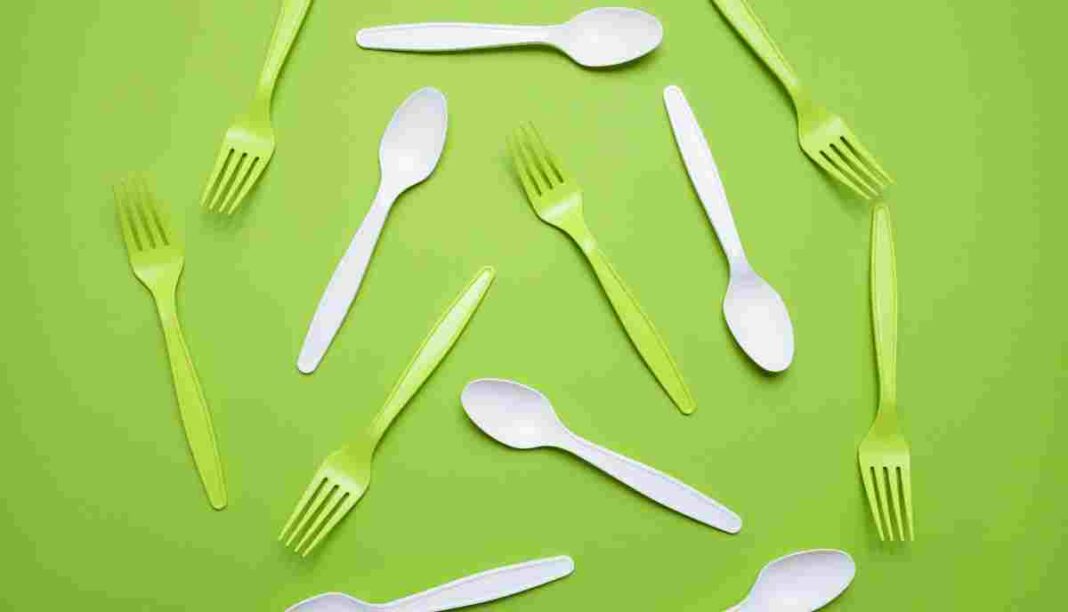UNITED KINGDOM: The government of England has stated that single-use products like plastic cutlery, plates, and trays will be outlawed to cut down on pollution.
Only 10% of the single-use plates and 4.25 billion pieces of silverware that are used in England each year are recycled after they are used, according to statistics.
According to a study, plastic food containers and cutlery, along with other things used to transport takeout food and beverages, make up the greatest portion of litter found in the world’s oceans.
According to rumours from last month, the environment secretary, Thérèse Coffey, is now planning to outlaw a number of single-use plastic items.
The move follows a consultation on the issue by the Department for Environment, Food and Rural Affairs (Defra) that ran from November 2021 to February 2022.
“A plastic fork can take 200 years to decompose, which is two centuries in landfills or polluting our oceans,” Coffey said.
“This new ban will have a huge impact to stop the pollution of billions of pieces of plastic and help to protect the natural environment for future generations,” he added.
England to impose ban on restaurants and cafes
On Saturday, the response to the survey on ideas for a ban on commonly-littered single-use plastic items in England is expected to be made public. According to some reports, the prohibition will extend to plastic silverware, plates, and trays.
Similar regulations have already been passed in Scotland and Wales. The UK government banned single-use plastic straws, stirrers, and cotton buds in England in 2020.
However, it appears that the new action is not all-encompassing. The prohibition will apply to plastic plates, bowls, and trays used for food and drink consumed in restaurants, cafes, or takeaways but not in settings like supermarkets and retail stores, according to the sources.
This is because, in the latter scenario, the items would be classified as “primary packaging,” a problem the government claims it is resolving in other ways, according to the consultation document published in November 2021.
Campaigners have previously applauded the move to outlaw single-use plastics as a positive development. However, some have criticized the slow pace of change and the ban’s constrained application. Others have emphasized the need to concentrate on stopping waste at the source.
Also Read: New Study Shows Nanoplastics Pose Unexpected Dangers When Exposed to Light



